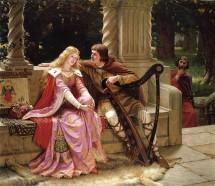Category Archive: Classical Music
Valentine’s Day
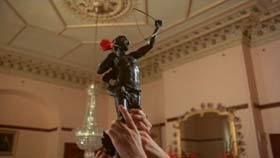
St. Valentine (from 'Picnic at Hanging Rock'
(2015 – ASO) After champagne and real Turkish delight, and the annual re-run of Picnic at Hanging Rock, it was time to head through Adelaide’s February furnace to the Festival Theatre, where Arvo Volmer conducted the Adelaide Symphony Orchestra’s version of a concert, curiously and incongruously entitled “Passionate Tchaikovsky”. We had the Russian composer’s Violin Concerto, with Ilya Gringolts sublime on lead violin, wearing a frock coat straight from Fiddler on the Roof. Written in 1878 to console its creator for the unfortunate and instantly-regretted decision to marry the loopy and self-centred Antonina Milyukova, the piece was not played till…
Continue Reading →Der Freischutz
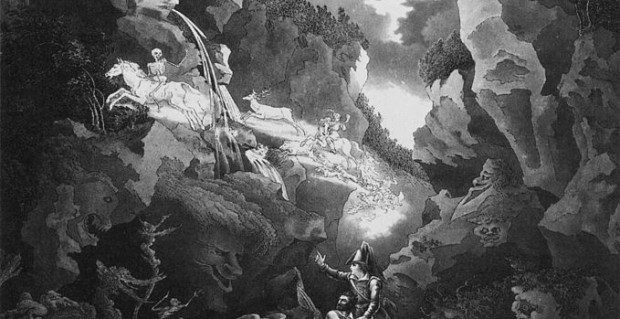
(By Carl Maria Friedrich Ernst von Weber, premiering in Berlin on 18 June, 1821) It is good news that Melbourne Opera staged this neglected gem not so long ago – bad news that TVC couldn’t get there to see it, and at the Athanaeum what’s more! It was reviewed by Peter Burch in ‘The Australian’. Quite daring when first staged in 1821, as much for the lower class characters as the ghostly theme that enchanted a young Wagner, Weber’s music is accomplished and highly accessible (touches redolent of Beethoven, and even, in overture, AIbioni) with effects used to great advantage, especially in the…
Continue Reading →The Richard Wagner Society
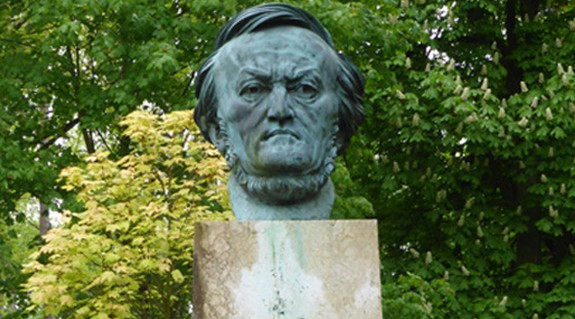
Wagner laughing at himself
14 April 2014 The Richard Wagner Society of SA presented Timothy Sexton, Artistic Director of State Opera SA, to present the inaugural Brian Coghlan Lecture in honour of its Past President. Sexton, who presented the Glass Trilogy in August 2014, was given the difficult brief of proving a link between Wagner and Glass, which he heroically did in an erudite and entertaining way, enlivened by musical examples. Although TVC‘s response to the lecture’s sub text “Was Richard Wagner the first experimental minimalist composer?” is a resounding “No”, we are now prepared to water down that ‘narrow-minded’ position a tad. Wagnerites…
Continue Reading →Ariadne & Theseus at the Mortlock Chamber
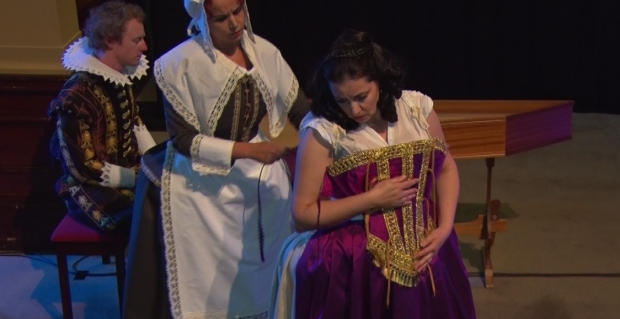
Picture courtesy of Dr Daniela Kaleva
To the Mortlock Chamber in the State Library of SA, to hear L’Arianna abbandonata e gloriosa and Lamento d’Arianna (1608), works reconstructed from Monteverdi’s fragmented scores, with solo voice and harpsichord, accompanied by the odd stage effect to evoke waves crashing on lonely Naxos, where (failed Argonaut) Theseus has parked Ariadne to show his gratitude for her help surviving the labyrinth on Minos. This paring away eschews the go-for-baroque approach that could overwhelm the purity of the harmonics, which are quite reminiscent of Purcell’s Dido pieces…
Continue Reading →Tristan und Isolde
Beware matchmakers. Beware writing opera when in lust with Mathilde Wesendonck. Beware love-of-death; it leads to the death of love, or death-porn. Wagner must have seen himself as Tristan to Mathilde’s Iseult, Lancelot to her Guinevere, when he shelved the Ring and forged perhaps the most beautiful opera of all. T & I poses a number of problems. Its staging should be spare yet lush. It requires a measure of taste and discretion, for Wagner wrote this work while well-unzipped (he expected the work to be censored unless it was played as parody) and the material can stray dangerously near…
Continue Reading →
